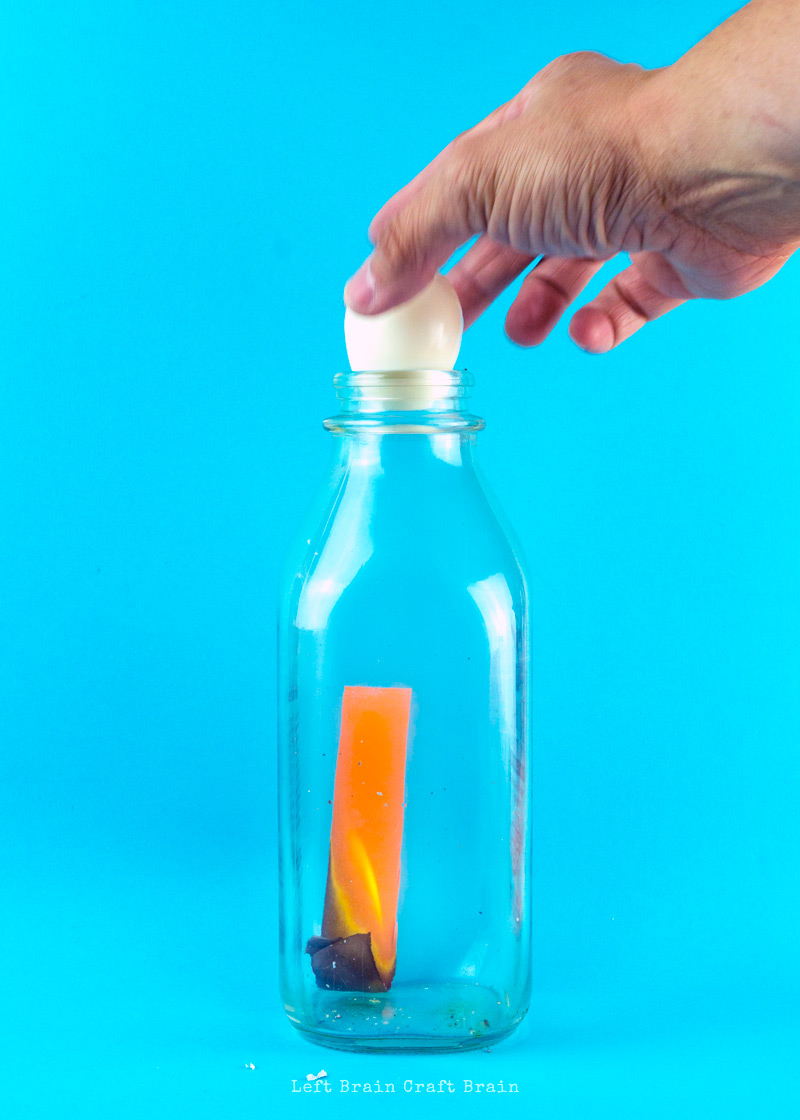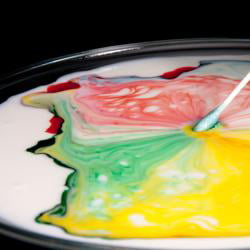Baking soda and vinegar experiment explanation
If you’re looking for baking soda and vinegar experiment explanation images information connected with to the baking soda and vinegar experiment explanation topic, you have come to the right blog. Our site frequently provides you with hints for refferencing the highest quality video and image content, please kindly surf and locate more enlightening video articles and graphics that fit your interests.
Baking Soda And Vinegar Experiment Explanation. Baking soda and vinegar react chemically we know that much simply by observing the experiments. Vinegar or acetic acid has the chemical formula ch3cooh. One of the products this reaction creates is carbon dioxide which makes the. To make the balloons inflate fully on the bottle blow them up first then let all the air out.
 Baking Soda And Vinegar Experiment Report From slideshare.net
Baking Soda And Vinegar Experiment Report From slideshare.net
Want to go even further. Vinegar or acetic acid has the chemical formula ch3cooh. When vinegar and baking soda are first mixed together hydrogen ions in the vinegar react with the sodium and bicarbonate ions in the baking soda. I save these for the times that i want to wow the kids. What actually happens is this. Baking soda and vinegar have chemistry.
Vinegar or acetic acid has the chemical formula ch3cooh.
One of the products this reaction creates is carbon dioxide which makes the. A chemical reaction has occurred. One of the products this reaction creates is carbon dioxide which makes the. Baking soda is bicarbonate nahco3 and vinegar is acetic acid hch3coo. This reaction is an example of a multi step reaction. Baking soda is a base also known as sodium bicarbonate and has the chemical formula nahco3.
 Source: m.youtube.com
Source: m.youtube.com
What actually happens is this. This reaction is an example of a multi step reaction. These activities explore the popular baking soda and vinegar reaction which is a simple acid base chemical reaction. Baking soda and vinegar have chemistry. The science behind baking soda vinegar.
 Source: worldacidrainsecrets.blogspot.com
Source: worldacidrainsecrets.blogspot.com
To make the balloons inflate fully on the bottle blow them up first then let all the air out. Furthermore we know that these two substances react with each other because of an acid base reaction. Want to go even further. Combining the vinegar an acid with the baking soda a base results in an entirely new substance carbon dioxide. Another name for baking soda is sodium bicarbonate if you are not familiar with the term baking soda.
 Source: researchgate.net
Source: researchgate.net
Baking soda experiments or activities are a great safe and easy way to introduce the concept of a chemical reaction to children. Want to go even further. Even more activities to inspire creativity and critical thinking for various ages. Baking soda and vinegar science experiments are some of the best simple science activities for children. One of the products this reaction creates is carbon dioxide which makes the.
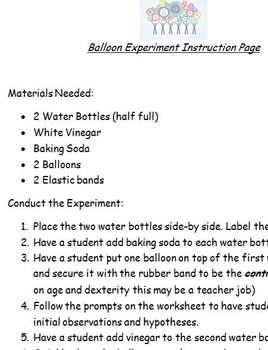 Source: teacherspayteachers.com
Source: teacherspayteachers.com
The acetic acid that s what makes vinegar sour reacts with sodium bicarbonate a compound that s in baking soda to form carbonic acid. To make the balloons inflate fully on the bottle blow them up first then let all the air out. Baking soda and vinegar have chemistry. Baking soda is alkaline and reacts with acids such as vinegar releasing carbon dioxide a gas and water. The result of this initial reaction is two new chemicals.
 Source: middleschoolchemistry.com
Source: middleschoolchemistry.com
What it is about the two ingredients that react in such phenomenally cool ways. Illustrate your experiment and results in a science journal or on a blank piece of paper. Want to go even further. Furthermore we know that these two substances react with each other because of an acid base reaction. This reaction is an example of a multi step reaction.
 Source: preschoolinspirations.com
Source: preschoolinspirations.com
One of the products this reaction creates is carbon dioxide which makes the. To make the balloons inflate fully on the bottle blow them up first then let all the air out. What it is about the two ingredients that react in such phenomenally cool ways. What actually happens is this. Baking soda and vinegar have chemistry.
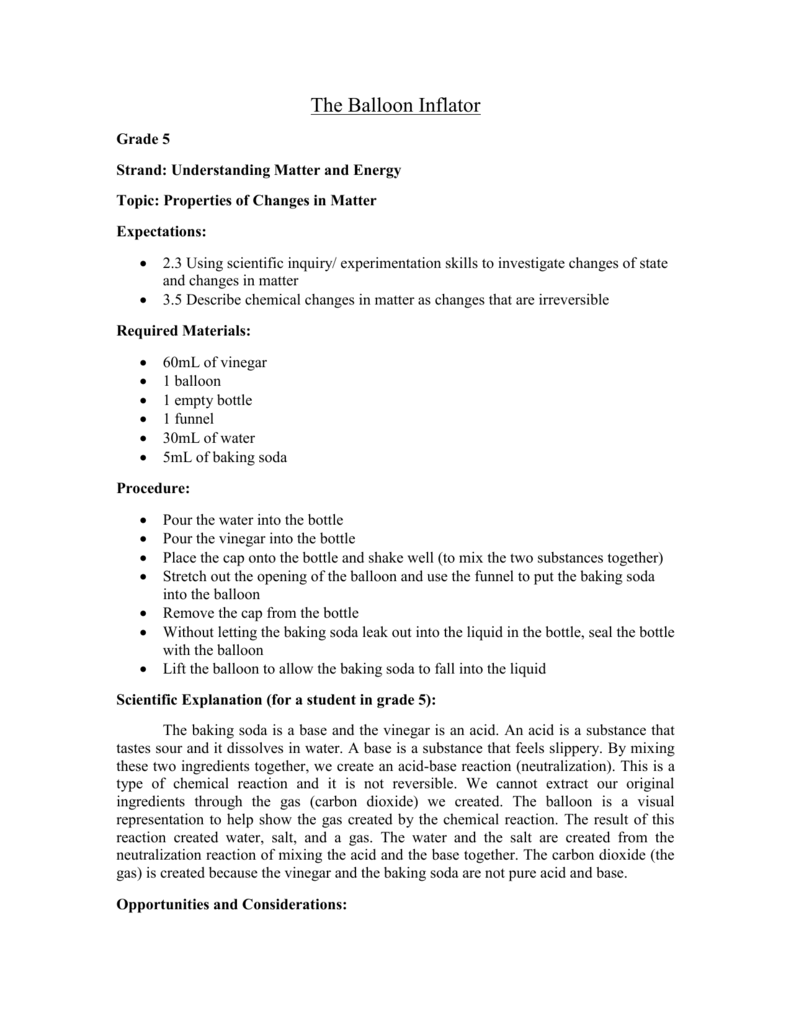 Source: studylib.net
Source: studylib.net
This reaction is an example of a multi step reaction. Baking soda and vinegar science experiments are some of the best simple science activities for children. To make the balloons inflate fully on the bottle blow them up first then let all the air out. The fizz produced is brilliant fun for children to watch especially if you combine with washing up liquid dish soap to make even more bubbles or add a. I save these for the times that i want to wow the kids.
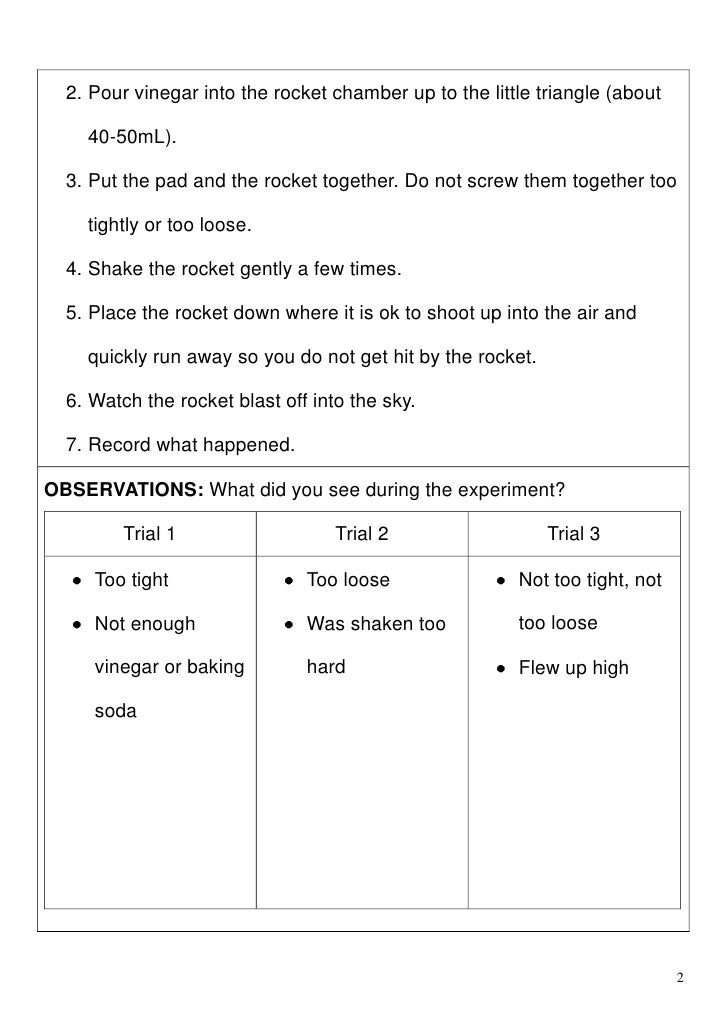 Source: slideshare.net
Source: slideshare.net
Baking soda and vinegar react chemically we know that much simply by observing the experiments. Vinegar or acetic acid has the chemical formula ch3cooh. Combining the vinegar an acid with the baking soda a base results in an entirely new substance carbon dioxide. I save these for the times that i want to wow the kids. Baking soda is alkaline and reacts with acids such as vinegar releasing carbon dioxide a gas and water.
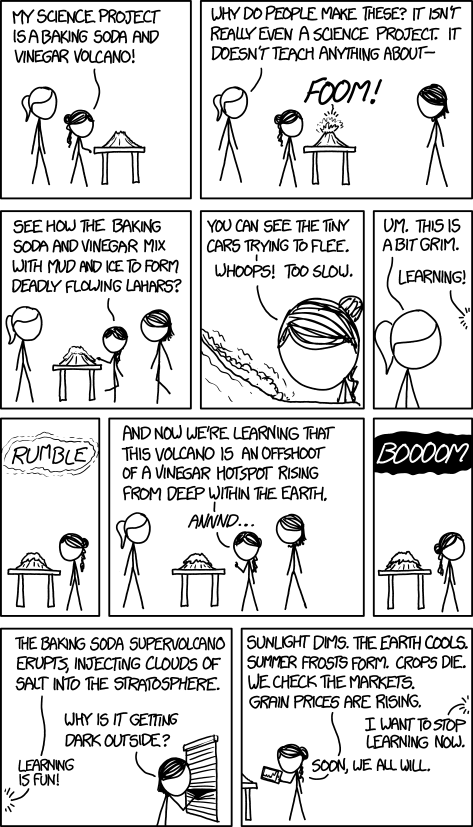 Source: explainxkcd.com
Source: explainxkcd.com
Shake the baking soda into the vinegar and the balloon will start to blow up. Baking soda is a base also known as sodium bicarbonate and has the chemical formula nahco3. The fizz produced is brilliant fun for children to watch especially if you combine with washing up liquid dish soap to make even more bubbles or add a. We can see the chemical reaction. Baking soda is alkaline and reacts with acids such as vinegar releasing carbon dioxide a gas and water.
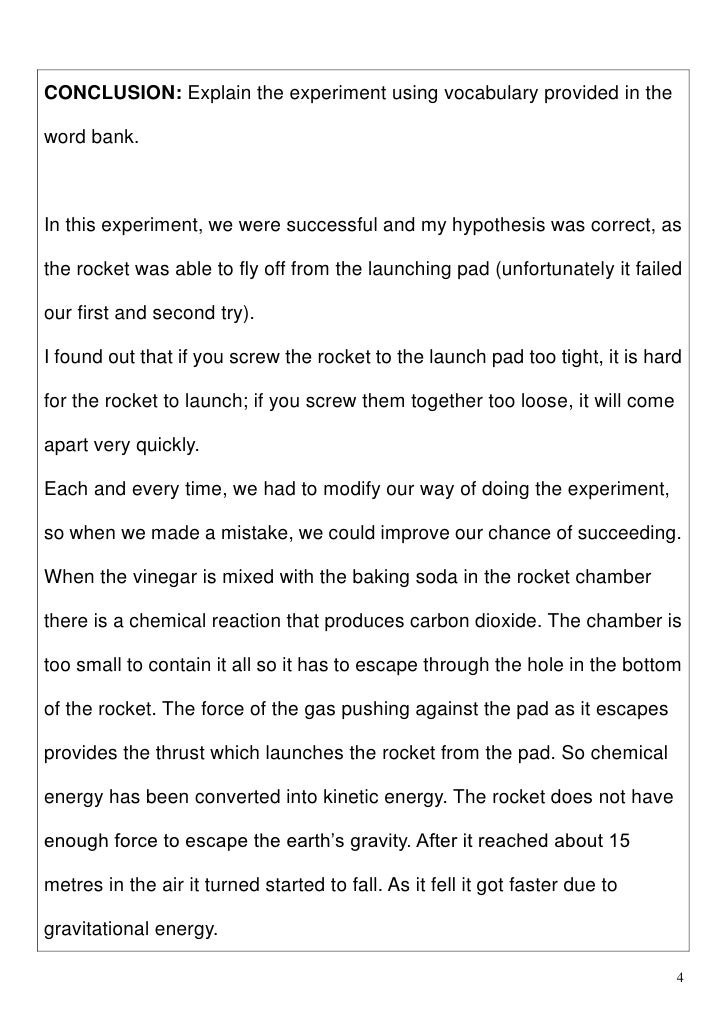 Source: slideshare.net
Source: slideshare.net
During this reaction the products are sodium acetate c2h3nao2. Baking soda and vinegar science experiments are some of the best simple science activities for children. Baking soda is alkaline and reacts with acids such as vinegar releasing carbon dioxide a gas and water. Baking soda and vinegar have chemistry. The science is that baking soda and vinegar react with each other because of an acid base.
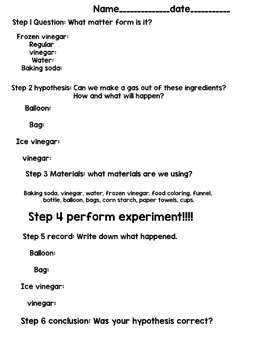 Source: teacherspayteachers.com
Source: teacherspayteachers.com
Pull out the kitchen ingredients for these simple yet magical activities for kids. Vinegar or acetic acid has the chemical formula ch3cooh. Shake the baking soda into the vinegar and the balloon will start to blow up. Illustrate your experiment and results in a science journal or on a blank piece of paper. Another name for baking soda is sodium bicarbonate if you are not familiar with the term baking soda.
 Source: chemistrycachet.com
Source: chemistrycachet.com
Another name for baking soda is sodium bicarbonate if you are not familiar with the term baking soda. Baking soda and vinegar have chemistry. I save these for the times that i want to wow the kids. We can see the chemical reaction. Vinegar or acetic acid has the chemical formula ch3cooh.
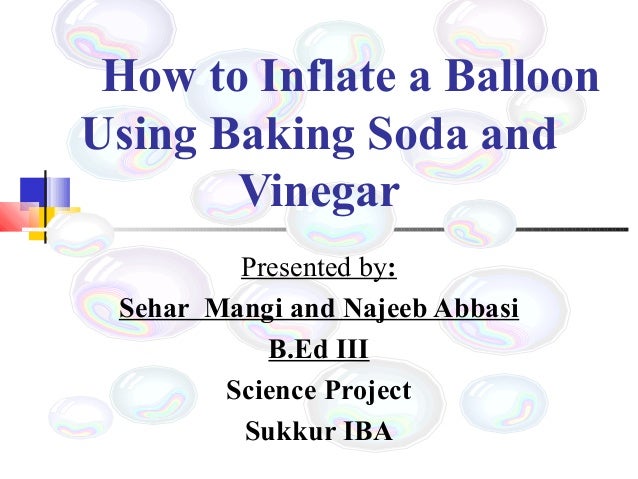 Source: slideshare.net
Source: slideshare.net
The science is that baking soda and vinegar react with each other because of an acid base. Baking soda and vinegar react chemically we know that much simply by observing the experiments. To make the balloons inflate fully on the bottle blow them up first then let all the air out. The overall chemical reaction between baking soda sodium bicarbonate and vinegar weak acetic acid is one mole of solid sodium bicarbonate reacts with one mole of liquid acetic acid to produce one mole each of carbon dioxide gas liquid water sodium ions and acetate ions. Attach to small plastic water bottle filled 1 3 to 1 2 way with white vinegar.
 Source: slideshare.net
Source: slideshare.net
Baking soda is bicarbonate nahco3 and vinegar is acetic acid hch3coo. Baking soda is alkaline and reacts with acids such as vinegar releasing carbon dioxide a gas and water. Baking soda is a base also known as sodium bicarbonate and has the chemical formula nahco3. Pull out the kitchen ingredients for these simple yet magical activities for kids. Fill balloon 1 3 to 1 2 way with baking soda.
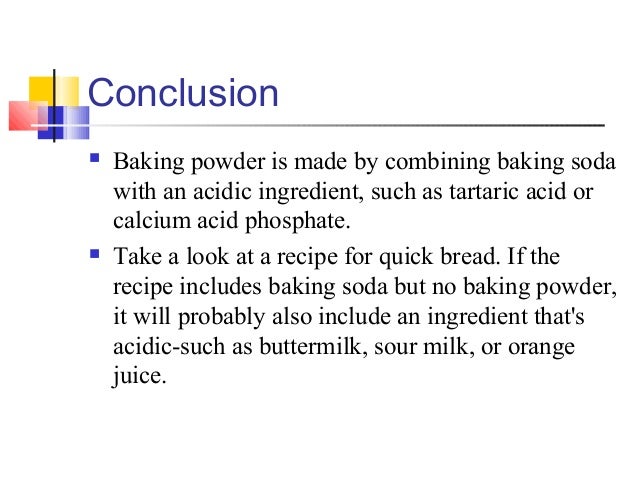 Source: slideshare.net
Source: slideshare.net
I save these for the times that i want to wow the kids. To make the balloons inflate fully on the bottle blow them up first then let all the air out. Baking soda is bicarbonate nahco3 and vinegar is acetic acid hch3coo. This reaction is an example of a multi step reaction. When vinegar and baking soda are first mixed together hydrogen ions in the vinegar react with the sodium and bicarbonate ions in the baking soda.
If you find this site adventageous, please support us by sharing this posts to your own social media accounts like Facebook, Instagram and so on or you can also save this blog page with the title baking soda and vinegar experiment explanation by using Ctrl + D for devices a laptop with a Windows operating system or Command + D for laptops with an Apple operating system. If you use a smartphone, you can also use the drawer menu of the browser you are using. Whether it’s a Windows, Mac, iOS or Android operating system, you will still be able to bookmark this website.




